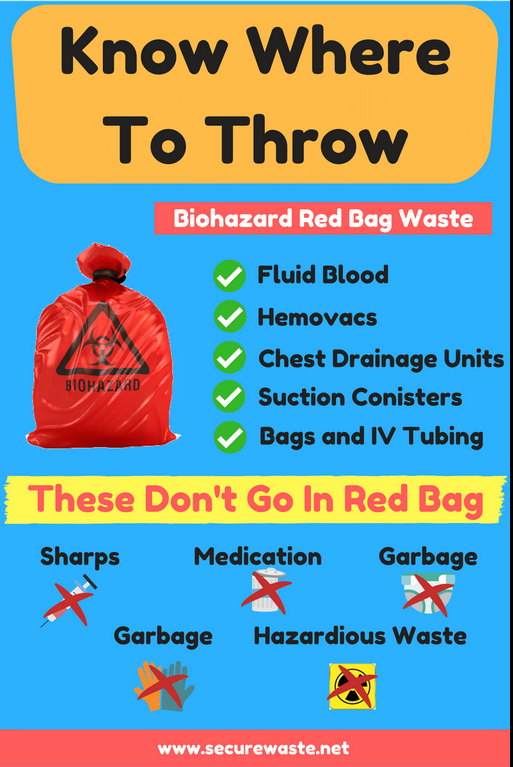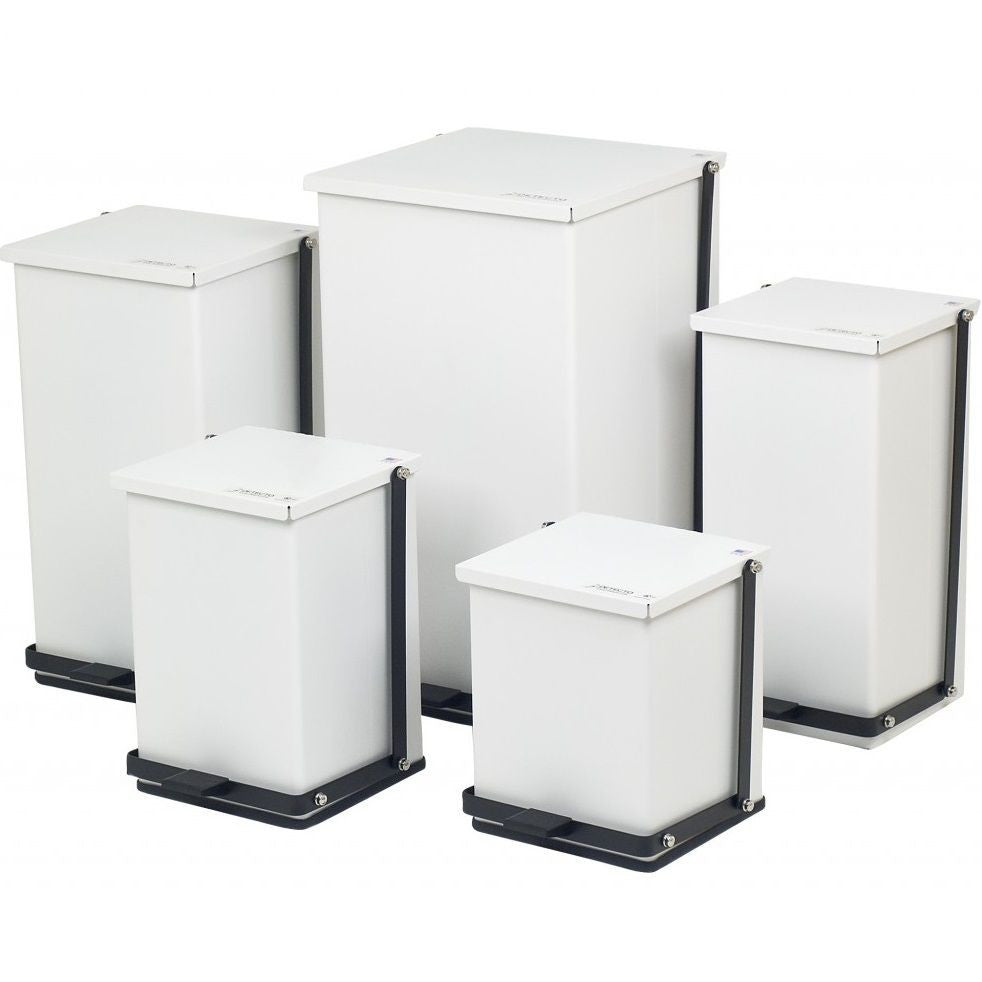Past Cleaning: Ensuring Safety And Security with Professional Medical Waste Removal
Keep Ahead of Laws: Professional Suggestions on Medical Waste Disposal
In a globe where the medical care sector is continuously progressing, it is vital for medical facilities to remain in advance of laws when it comes to the correct disposal of medical waste. From comprehending the various classifications of clinical waste to executing the ideal collection and partition approaches, this conversation will certainly give actionable suggestions and beneficial insights to aid centers remain in advance of laws in the ever-changing landscape of medical waste disposal.
Recognizing Clinical Waste Categories
Understanding clinical waste classifications is vital for appropriate disposal and management in healthcare facilities. Medical waste describes any kind of waste generated by health care activities that may posture a threat to public health or the environment. It is vital to categorize medical waste accurately to guarantee its secure handling, disposal, transportation, and therapy.
There are a number of categories of medical waste that health care centers require to be accustomed to. One of the most common categories include infectious waste, pathological waste, sharps waste, pharmaceutical waste, and chemical waste. Each classification has particular standards and policies for its proper management and disposal.
Pathological waste refers to human cells, organs, or body components that call for unique handling and disposal. Drug waste comprises run out, unused, or polluted medications that need cautious handling and disposal.
Remaining Up-To-Date With Regulatory Modifications
Staying existing with regulative adjustments is crucial for medical care facilities to make sure conformity and appropriate administration of medical garbage disposal. medical waste removal service. With guidelines frequently progressing, it is crucial for healthcare facilities to stay updated to avoid fines, penalties, and potential damage to the atmosphere and public wellness
To remain in advance of regulatory adjustments, health care facilities must develop a system for surveillance and tracking updates. This can be done by signing up for regulative newsletters, going to conferences and workshops, and actively getting involved in industry organizations. Furthermore, facilities should mark a personnel or group responsible for staying informed and sharing info to appropriate stakeholders.
Routine interaction with regulative agencies is additionally important. Health care facilities ought to establish relationships with regional, state, and government companies to guarantee they know any modifications in regulations that may impact their waste management techniques. This can be done through normal meetings, involvement in public remark durations, and proactive interaction with governing agencies.
Moreover, healthcare centers must think about partnering with waste monitoring firms that focus on medical garbage disposal (medical waste disposal services with WasteX). These business are frequently fluent in the most up to date guidelines and can supply guidance and support to guarantee compliance
Carrying Out Correct Collection and Partition Methods
To efficiently handle clinical garbage disposal, medical care centers must establish appropriate collection and segregation techniques based on governing standards. Applying these approaches makes certain the safe handling and disposal of potentially hazardous materials, protects the environment, and minimizes the risk of infections and injuries to health care employees and the public.
Appropriate collection and segregation techniques include making use of assigned containers and identifying systems. Health care facilities ought to offer plainly identified containers for various kinds of clinical waste, such as sharps, transmittable waste, pharmaceutical waste, and non-hazardous waste. These containers need to be color-coded and plainly significant to stay clear of confusion and promote very easy identification.
In addition, healthcare facilities must educate their team on the proper procedures for this website collecting and setting apart medical waste. helpful hints This includes informing them on the different kinds of waste, the ideal containers to make use of, and the importance of following standards and policies. Normal training sessions and correspondence course need to be conducted to guarantee that employee stay updated on ideal techniques.
In addition, medical care facilities ought to develop a system for regular collection and disposal of clinical waste. This might involve partnering with certified waste management companies that concentrate on medical garbage disposal. These companies will ensure that the accumulated waste is delivered and dealt with in conformity with regulatory demands.
Choosing the Right Disposal Approaches

Incineration is among one of the most reliable and common methods for getting rid of certain sorts of medical waste, such as pathological waste and sharps. It involves the regulated combustion of waste at high temperatures, reducing it to ash. However, incineration can launch harmful contaminants right into the air and add to air pollution.

Chemical treatment involves the usage of chemicals to reduce the effects of the waste and decontaminate. Microwave treatment uses microwave power to warm and disinfect the waste.
Making Sure Compliance Via Documentation and Training
After thoroughly considering the ideal disposal techniques for medical waste, healthcare centers need to guarantee conformity with regulations and decrease environmental impact by executing effective paperwork and training treatments. This action is important in keeping a secure and sustainable atmosphere for both health care employees and the general public.

Training is just as important in making certain compliance with laws. Healthcare employees that deal with clinical waste should get ideal training on waste segregation, handling, and disposal procedures. This training must cover subjects such as the proper use individual safety equipment, identification of different types of waste, and the appropriate disposal approaches for each waste classification. By giving detailed training, healthcare facilities can equip their team to make informed choices and minimize the danger of incorrect waste disposal.
Verdict
To conclude, staying ahead of laws in clinical waste disposal is important for health care centers. medical waste removal. Comprehending the various groups of medical waste, staying updated with regulative changes, implementing appropriate collection and partition techniques, picking the appropriate disposal methods, and making certain compliance via paperwork and training are all vital actions. By adhering to these guidelines, healthcare organizations can properly get rid of and handle of medical waste in a secure and accountable manner
From understanding the various categories of clinical waste to executing the right collection and partition methods, this conversation will give useful insights and actionable tips to help facilities remain in advance of guidelines in the ever-changing landscape of medical waste disposal. - medical waste disposal services with WasteX
The most usual classifications include transmittable waste, pathological waste, sharps waste, pharmaceutical waste, and chemical waste. Medical care facilities should offer plainly labeled containers for various kinds of medical waste, such as sharps, transmittable waste, pharmaceutical waste, and non-hazardous waste. Healthcare centers must develop a detailed system to videotape and track all facets of medical waste disposal, including types of waste produced, amounts, and disposal methods used. Healthcare workers who deal with medical waste needs to obtain ideal training on waste partition, handling, and disposal treatments.